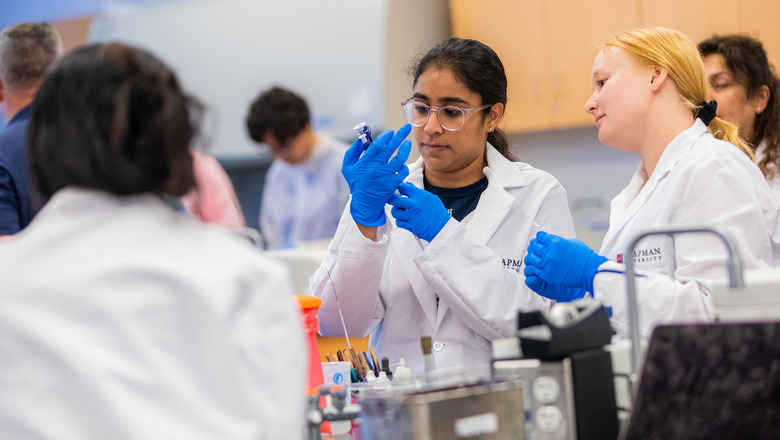
Physician’s Assistants (PA’s) are licensed clinicians who practice medicine in every specialty and setting. They must have a license and supervising physician before they can practice. While the specifics of the PA’s responsibilities are dependent on the physician with whom they work and the laws governing their license, PA’s can develop treatment plans, perform physical exams, order and interpret laboratory tests, diagnose and treat illnesses, counsel patients on preventive health care, assist in surgery, and many other things. Their education is as a generalist, with a primary care foundation.
In general, students will need a minimum of 1,000 and closer to 2,500 hours of hands-on clinical experience to be a competitive applicant. A GPA of 3.5 or higher is ideal. In addition, you should cultivate a variety of experiences that make you a strong candidate.
All of these things demonstrate your readiness and motivation to pursue a career as a physician’s assistant.
Activities and extracurriculars
Get involved early in these and ramp up to have a well rounded resume by the time you apply. However, your first job is your academics. You need to maintain a strong academic foundation to be competitive.
- Hands-On Patient Care Experiences: You can gain experience and learn about the field in a number of ways:
- Medical Assistant (MA).
- Certified Nursing Assistant (CNA).
- Emergency Medical Technician (EMT).
- Medic, Phlebotomist, Dental Assistant.
- This list is brief and in no way exhaustive. There are many more hands-on opportunities to explore.
- Other Healthcare Experiences: In addition, you should have other healthcare experiences to help you confirm your
PA goals. These include:
- Shadowing physicians, PA’s, nurses, and other healthcare providers.
- Volunteering in hospitals and other clinical settings.
- Community service. give of yourself to your community. Shelters, food banks, community resource centers, and after-school programs. Preferably not clinically related, although in some cases there may be some crossover.
- Research. Chapman offers many opportunities for students to get involved in research as an undergrad.
- Extracurriculars. Involvement in things you’re interested in, including clubs; does not need to be clinically related.
Academics/prerequisites
These are the general courses you should take. There may be some programs that have additional or fewer requirements. Always check with the programs to confirm.
|
Required subjects |
Course options |
|---|---|
|
Human Anatomy (1 semester with lab) |
HSCI/BIOL 210 |
|
Biology (2 semesters with labs) |
• BIOL 204 Biology AP credit generally not accepted |
|
Human Physiology (2 semesters with labs) |
• HSCI 365A |
|
Microbiology (1 semester with lab) |
BIOL 317 |
|
Genetics (1 semester) |
BIOL 330 |
|
Calculus (1 semester) |
MATH 110 or MATH 111 (or AP credit) |
|
Statistics (1 semester) |
Most stats courses (Options include MATH 203, PSYC 203, MATH 303, or AP credit) |
|
Intro to Sociology (1 semester) |
SOC 101 |
|
English Composition (1-2 semesters) |
• ENG 103 |
|
General Chemistry (2 semesters with labs) |
• CHEM 140 and CHEM 140L Chemistry AP credit generally not accepted |
|
1 semester of Organic Chemistry and/or 1 semester of Biochemistry may be required |
• CHEM 230L • CHEM 335 |
|
Medical Terminology (1 semester) |
HSCI 105 |
|
Psychology (1 semester) |
PSY 101 |
